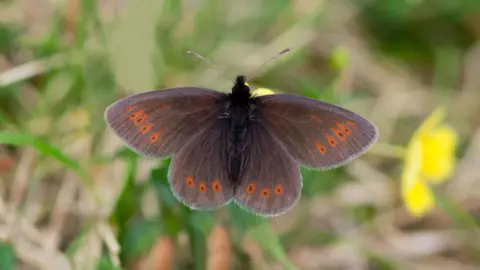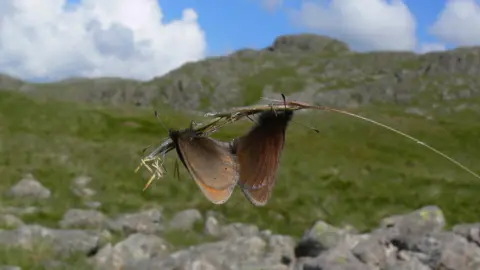Walkers asked to look for rare mountain butterfly
 PA Media
PA MediaVisitors to the Lake District are being asked to look out for a mountain butterfly which is the only one of its kind in England.
The mountain ringlet is so elusive that, even in Scotland where it is more common, conservationists are still unsure exactly how many exist.
The public is being asked to log any sightings of the creature, which is brown with orange wing spots, to help scientists improve their knowledge of the species.
Martin Wain, from the wildlife charity Butterfly Conservation North of England, said: "We urgently need to know more about where it is so we can learn more about how to protect it."
Adult mountain ringlets usually emerge in June and fly for up to three weeks, but the timing depends on the weather.
The last week of May is the earliest it has been spotted in Cumbria, with mid-July being the latest.
Only 35-38mm (1.4inches) in size, they are active in bright sunshine, keeping low to the ground in short flights and pausing to feed on bunchgrass and other plants.
Experts are concerned numbers are being affected by climate change, with areas of suitable habitat becoming smaller as temperatures rise.
 PA Media
PA MediaButterfly Conservation has produced a map of previous sightings all above 450m (1,476ft) on mountains in the Borrowdale volcanic group - from Wasdale in the west to Mardale and Haweswater in the east.
The map also includes potential new locations marked in pink squares, near to existing sightings.
Mr Wain added: "Looking for the mountain ringlet can add extra interest to your hike, whether you slow down and mindfully look for it, watch out for it as you eat your sandwiches or just keep it in mind as you walk."
The charity also aims to work with farmers and land managers across Cumbria to trial different land management techniques, in particular grazing regimes, to see how to maintain the best habitat for the mountain ringlet.
